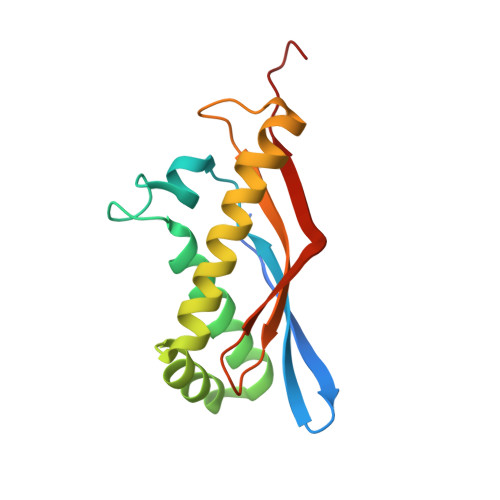Displacement of the canonical single-stranded DNA-binding protein in the Thermoproteales.
Paytubi, S., McMahon, S.A., Graham, S., Liu, H., Botting, C.H., Makarova, K.S., Koonin, E.V., Naismith, J.H., White, M.F.(2012) Proc Natl Acad Sci U S A 109: E398-E405
- PubMed: 22106294
- DOI: https://doi.org/10.1073/pnas.1113277108
- Primary Citation of Related Structures:
3TEK - PubMed Abstract:
ssDNA-binding proteins (SSBs) based on the oligonucleotide-binding fold are considered ubiquitous in nature and play a central role in many DNA transactions including replication, recombination, and repair. We demonstrate that the Thermoproteales, a clade of hyperthermophilic Crenarchaea, lack a canonical SSB. Instead, they encode a distinct ssDNA-binding protein that we term "ThermoDBP," exemplified by the protein Ttx1576 from Thermoproteus tenax. ThermoDBP binds specifically to ssDNA with low sequence specificity. The crystal structure of Ttx1576 reveals a unique fold and a mechanism for ssDNA binding, consisting of an extended cleft lined with hydrophobic phenylalanine residues and flanked by basic amino acids. Two ssDNA-binding domains are linked by a coiled-coil leucine zipper. ThermoDBP appears to have displaced the canonical SSB during the diversification of the Thermoproteales, a highly unusual example of the loss of a "ubiquitous" protein during evolution.
- Biomedical Sciences Research Complex, University of St Andrews, Fife KY16 9ST, United Kingdom.
Organizational Affiliation:
















